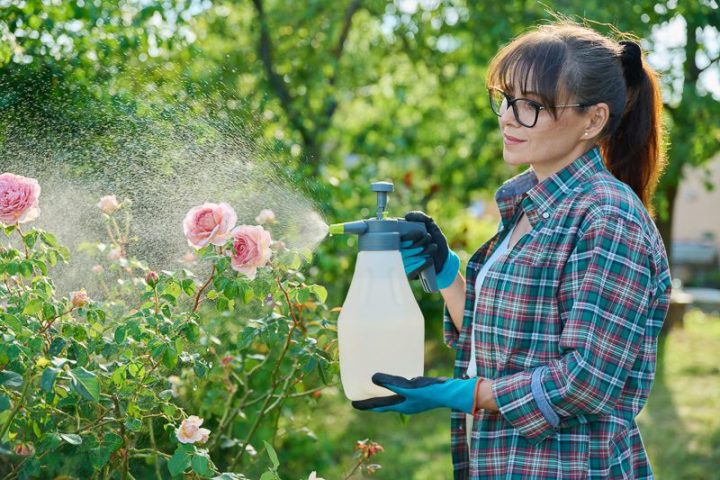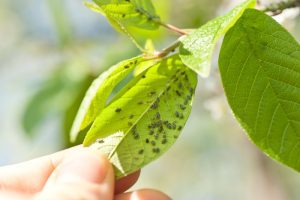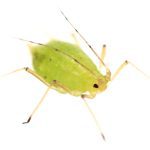
Annihilate those aphids
Warmer days, and muggy humid weather often brings an outbreak of aphids in the garden, especially on tender young roses. By Lynda Papesch.
By all accounts, many Canterbury gardeners are already experiencing explosions of the little sap-sucking insects. 
Dealing with them usually includes regular spraying, and this is where opinions differ on what spray to use to eliminate the pests. Recently, a TikToker posted success with mixing equal parts of full fat milk and water, then spraying it all over the plants, noting, “If you do it consecutively on aphids for a number of days, the aphids will actually suffocate from the fat in the milk”.
Of course, commercial sprays are available from garden centres, and there are several recommended environmentally-friendly solutions. My go-to is soapy dishwater, however here are some suggestions from other gardeners. Spraying should be repeated every 3-5 days for 2 weeks to ensure eradication.
• Use the flat setting on a watering nozzle to hose plants with a steady, low pressure stream of water, focusing on the underside of the leaves.
• In a spray bottle, add 1 tablespoon of dish soap and a few drops of vegetable oil to one litre of water. Spray thoroughly as above. Wait 20 minutes and then rinse with water.
• Finely chop 3 large cloves of garlic, and soak in 3 cups of water in an air-tight container overnight. Strain the tea through a sieve so just the garlic-infused water remains. Mix in a teaspoon of dishwashing liquid, put into spray bottle and fire away.
 Aphids are small sap-sucking insects and members of the superfamily Aphidoidea. Common names include greenfly and blackfly, although individuals within a species can vary widely in colour. The group includes the fluffy white woolly aphids, and the black variety.
Aphids are small sap-sucking insects and members of the superfamily Aphidoidea. Common names include greenfly and blackfly, although individuals within a species can vary widely in colour. The group includes the fluffy white woolly aphids, and the black variety.




